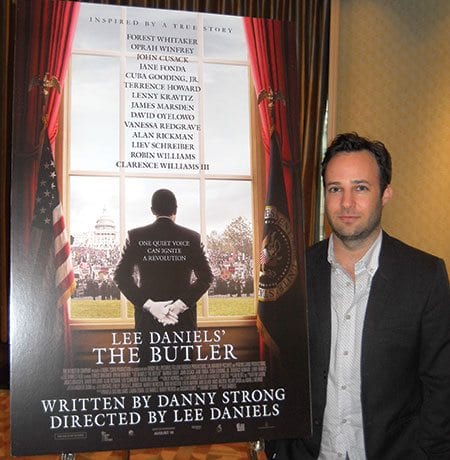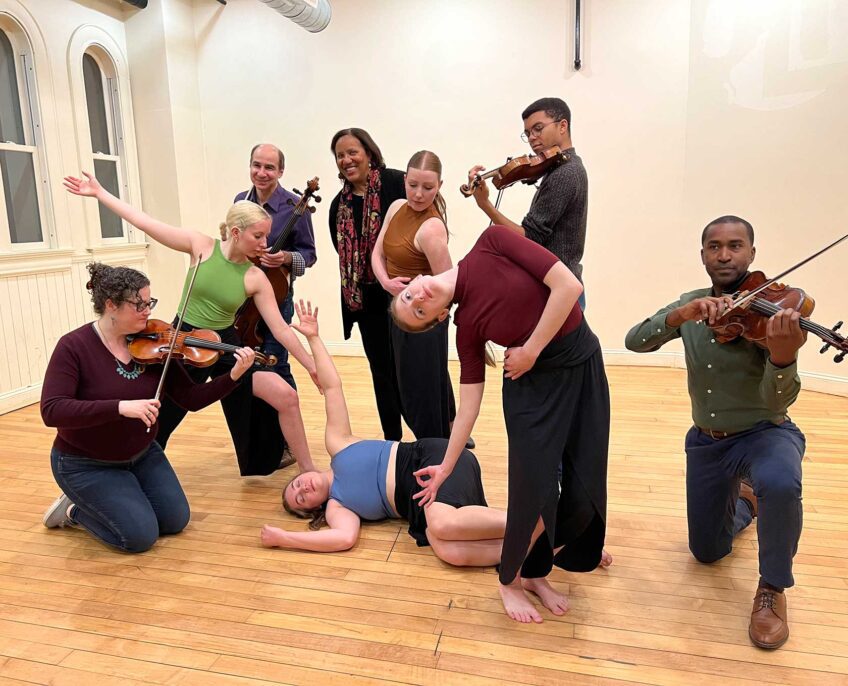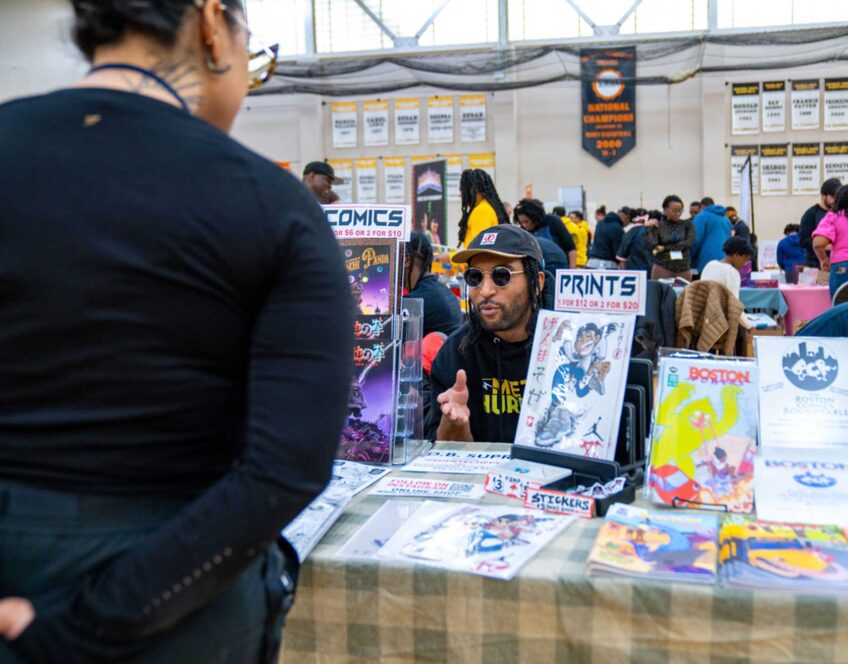In the Mix: ‘The Butler’
Screenwriter Danny Strong discusses Lee Daniels’ ‘The Butler’

Best known for his character “Jonathan Levinson” on the long-running television series Buffy the Vampire Slayer and for his recent role as “Danny Siegel,” the first Jewish ad man at the fictional Sterling Cooper Draper Pryce on the hit series Mad Men, Danny Strong is an accomplished, award-winning screenwriter, producer and actor — all before the age of 40.
Strong made the seamless transition from acting to writing in part because his friend Michael McCall (21 Jump Street and Scott Pilgrim vs. the World), who he auditioned against for many years, sold a script and Strong said that he “was so jealous that he was taking meetings with executives and I was still auditioning for a Frosty Nut Crunch commercial.”
And so he wrote his first script, called Recount, which took an intimate look at the 2000 U.S. presidential election. The film premiered on HBO in 2008 and starred Kevin Spacey, Laura Dern, Tom Wilkinson and Denis Leary. Strong won his first Writers Guild Award for Recount and received his first Emmy nomination in the Outstanding Writing for a Miniseries, Movie or Dramatic Special category.
He also wrote and executive-produced the much-talked-about film Game Change, based on the bestselling book of the same name by John Heilemann and Mark Halperin, which chronicles the historic events of the 2008 U.S. presidential election. The film starred Julianne Moore in the title role of Sarah Palin and Ed Harris as Senator John McCain. The film went on to win five Emmys, including two individual wins for Strong in the categories of Outstanding Miniseries or Movie and Outstanding Writing for a Miniseries, Movie or a Dramatic Special categories.
Strong’s latest challenge is writing the highly anticipated two-part finale to The Hunger Games trilogy, Mocking Jay Part 1 and Mocking Jay Part 2, due to be released in November of 2014 and 2015. In addition, Strong is also set to make his directorial debut with The Crusaders, a film about Thurgood Marshall and the historical 1954 Brown v. Board of Education case, and he’ll also produce the upcoming Sugar Ray Robinson biopic Sweet Thunder starring David Oyelowo.
Before the finale of The Hunger Games gets under way, Strong is on a promotional tour discussing his latest film, Lee Daniels’ The Butler. The drama tells the story of fictional White House butler Cecil Gaines, played by Forest Whitaker, who serves during seven presidential administrations between 1957 and 1986. The film is inspired by Wil Haygood’s 2008 Washington Post article “A Butler Well Served by This Election”, which chronicled the real life of former White House butler Eugene Allen.
During a recent roundtable interview in Boston to promote Lee Daniels’ The Butler, Danny Strong talked about the making of the film and the person that inspired it.
Are you happy with the film?
I love the movie. I think Lee Daniels did such an amazing job. The actors are just tremendous and I think these performances are tremendous. I’m really proud of it and I think Lee is proud it. We’re just excited to get it out there.
What struck you about the article that the film is based on and how much did you draw from that article?
It was the concept of a character that is in the White House through the decades. I thought, there could be something really special there. I have no idea what it is. I have no idea how I’m going to write this or what the story is. But just the concept seemed really great. It was very difficult. It was the most complicated script I’ve ever written.
When you see the movie, it’s seems so obvious that it’s going to be a movie about the Civil Rights Movement. And of course, that’s the story. I didn’t know that’s what it was going to be when I started. It could have been anything. The whole movie could have been about one administration. We could have done whatever we wanted. There are so many historical events. So, which ones do you choose from?
What do you cover politically because it does take place in the White House? If you’re not covering history and politics what’s the point of the concept of it being about the White House butler? It could be about anything. So figuring out that I was going to make the spine of the movie the Civil Rights Movement was a big breakthrough for me, and then figuring out the father-son dynamic. When I came up with those two things I thought, that’s the story.
Did you have an opportunity to interview Eugene Allen’s son or anyone in the family?
I interviewed Eugene Allen and I spent a lot of time with his son. And I still talk to his son Charles. I love Charles. A lot of stuff from the movie comes from my conversation with Charles about black history that didn’t necessary relate to Charles himself.
Another element that was very helpful was memoirs of people that worked in the White House. One that was particularly helpful was My 21 Years in the White House by Alonzo Fields.
In the case of Charles, who loves the movie by the way — and what I loved about Charles, was early on after I’d written the scripts, how much he was on board with the fact that it wasn’t going to be his dad’s exact life story, that the character of Cecil Gaines had created this composite character. But nonetheless, there’s still quite a bit inspired by Eugene Allen. I remember in my interview with him, I asked him about the Civil Rights Movement and he said “I’m too old for that.” To me, that’s the heart of Cecil Gaines.
What would you like people to walk away from in respect to everything going on in America today?
A better understanding of the history of race in America. I don’t think people know our past that well. I said that to Lee Daniels at our first meeting. And he said, “That’s why I’m doing this. But I’m not doing it for white America. I’m here for black America.” He said, “My daughter who goes to a private school in New York City knows more about the Holocaust than her own history.”
See Lee Daniels’ The Butler when it opens in theaters nationwide on Aug. 16.
If you would like Colette Greenstein to cover or write about your event, email her at inthemixwithcolette@gmail.com.




![Banner [Virtual] Art Gallery](https://baystatebanner.com/wp-content/uploads/2024/04/NJ-H_1-713x848.jpg)

